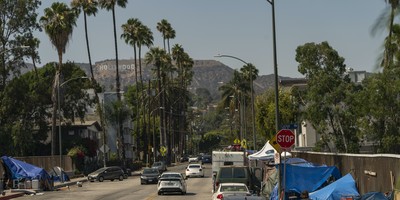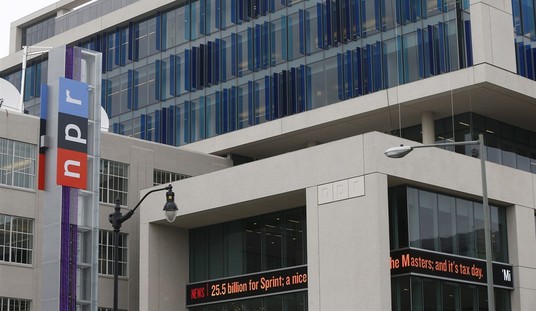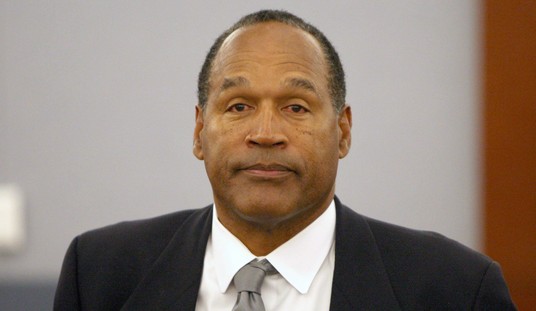“The Appalachian voting bloc will be critical in the … 2008 presidential election,” former Democratic National Committee executive director Mark Siegel says.
Yet his broad statement comes with its own geopolitical caveat: location.
“It all depends on what part of Appalachia you are talking about,” says Siegel. “If they live in Pennsylvania and Ohio, then, yes, without a doubt they are the key voters. If they live in West Virginia, then no, because for the Democrats that is not a state that is in play.”
Appalachia is not a single state but a region that has its own unique frame (or perhaps frames) of mind that extend well past the borders of West Virginia and Kentucky, the states most often associated with the term.
As a geographical entity, Appalachia cuts a diagonal path from western New York to Alabama and Mississippi. The regions and cultures that go along with it include big swaths of Pennsylvania, Ohio, West Virginia, Maryland, Kentucky, Virginia, North Carolina, South Carolina, Georgia and Tennessee.
Who are the people that live, work, raise families, go to church, defend their country and die in this region?
According to U.S. Sen. Jim Webb, D-Va., the bulk of them descended from Ulster Scots (lowland Scots who migrated to the Ulster plantation in Ireland) -- a hybrid people, “strong and unfulfilled,” who came to America looking for a new start.
Descendents of the great Scottish warrior William Wallace, these immigrants brought with them a distrust of a heavy-handed government, a demand to worship God as they saw fit, the right to bear arms and the zeal to protect their country -- far more than any other ethnicity.
Many of those core values remained with these people as they settled in Appalachia, even as they married other early settlers such as Germans, Welsh and Native Americans.
Recommended
Exactly who are these voters today?
In the Democrats’ primaries, they were the white lower- to middle-class voters in Ohio, Western Pennsylvania, Western Virginia, Kentucky and West Virginia who went heavily for Sen. Hillary Clinton.
They are not activists who attend rallies and speak out -- but they will vote.
They are hurting economically, the people most impacted by spiraling gas prices because they drive -- to work, to shop, to the doctor, or to care for an elderly parent -- and they have no alternatives.
Government has forgotten them in many ways and taken them for granted in others.
These voters are dedicated to family, country and God. That is not to say they wear those things on their sleeve for all to see; they don't talk about those things unless asked.
They are simple people who want their leaders to be honest with them.
All of which is why they became Reagan Democrats: Reagan sided with them on love of country and on economics. Today, the question is whether they will give that same level of support to John McCain.
Many of them respect McCain’s service and dedication to country -- but their pocketbooks have been emptied, and it happened on the Republicans’ watch.
“Economically, they should be voting Democratic,” says Siegel. “In terms of social values, they should be trending Republican. They are a very difficult political target.”
Political analyst and numbers-cruncher Michael Barone has noticed problems for Obama among this voting bloc, which he refers to as “Jacksonian” -- for the famed Scots-Irish president who was a friend to the warrior class in Appalachia.
“I don’t know if it is enough of a problem yet, time will tell,” Barone says. But he believes the challenge for Obama is that he is viewed as an elitist by many of these people.
Along with that, a tinge of racism is at play. But clearly it goes beyond that, to Obama’s style, his substance and the way he carries himself.
Everyone thought Karl Rove and George W. Bush were crazy to spend time and money in West Virginia in 2000; a Democrat-blue state, it only went Republican in 1972 and 1984. What Democrats missed was the change in their party from Bill Clinton to elite -- and it cooked Al Gore and sank John Kerry.
No academic has scientifically determined if Appalachia’s Scots-Irish heritage can predict its natives’ voting patterns.
That means the hows and whys of their vote remain wildly unpredictable -- as well as crucial to Obama and McCain, both of whom can claim Scots-Irish heritage.
























Join the conversation as a VIP Member